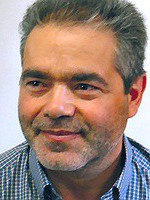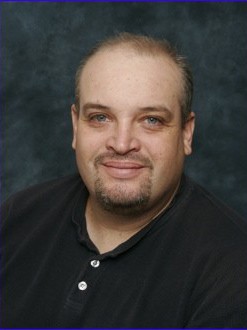resumo
We report the first ever robocast (additive manufacturing/3D printing) sintered ceria scaffolds, and explore their use for the production of renewable fuels via solar thermochemical fuel production (STFP, water and carbon dioxide splitting using concentrated solar energy). CeO2 catalyst scaffolds were fabricated as 50 mm diameter discs (struts and voids similar to 500 mu m), sintered at 1450 degrees C, with specific surface area of 1.58 m(2) g(-1). These scaffolds have hierarchical porosity, consisting of the macroporous scaffold structure combined with nanoscale porosity within the ceria struts, with mesopores <75 angstrom and an average pore size of similar to 4 nm, and microporosity via thermogravimetric analysis (TGA) with reduction between 1050-1400 degrees C under argon, and oxidation at 1050 degrees C with 50% CO2, gave rapid CO production during oxidation, with high peak CO production rates (0.436 mu mol g(-1) s(-1), 0.586 ml g(-1) min(-1)), for total CO yield of 78 mu mol g(-1) (1.747 ml g(-1)). 90% CO was obtained after just 10 min of oxidation, comparing well to reticulated ceria foams, this CO production rate being an order of magnitude greater than that for ceria powders when tested at similar temperatures.
palavras-chave
CORK-TEMPLATED CERIA; HYDROGEN-PRODUCTION; POROUS CERIA; H2O; AL2O3; PARTS
categoria
Chemistry; Science & Technology - Other Topics; Materials Science; Physics
autores
Ben-Arfa, BAE; Abanades, S; Salvado, IMM; Ferreira, JMF; Pullar, RC
nossos autores
Grupos
G4 - Materiais Renováveis e Economia Circular
G5 - Materiais Biomiméticos, Biológicos e Vivos
Projectos
Solar thermochemical production of hydrogen based on cork Ecoceramics (H2CORK)
agradecimentos
R. C. Pullar wishes to thank the FCT (Fundacao para a Ciencia e a Tecnologia, Portugal) Grant IF/00681/2015 for supporting this work. B. A. E. Ben-Arfa thanks FCT project H2CORK (PTDC/CTM-ENE/6762/2014) for supporting him during this work. This work was developed within the scope of the project CICECO-Aveiro Institute of Materials, UIDB/50011/2020 & UIDP/50011/2020, financed by national funds through the FCT/MEC and when appropriate co-financed by FEDER under the PT2020 Partnership Agreement





